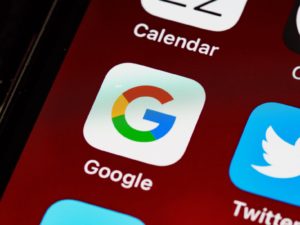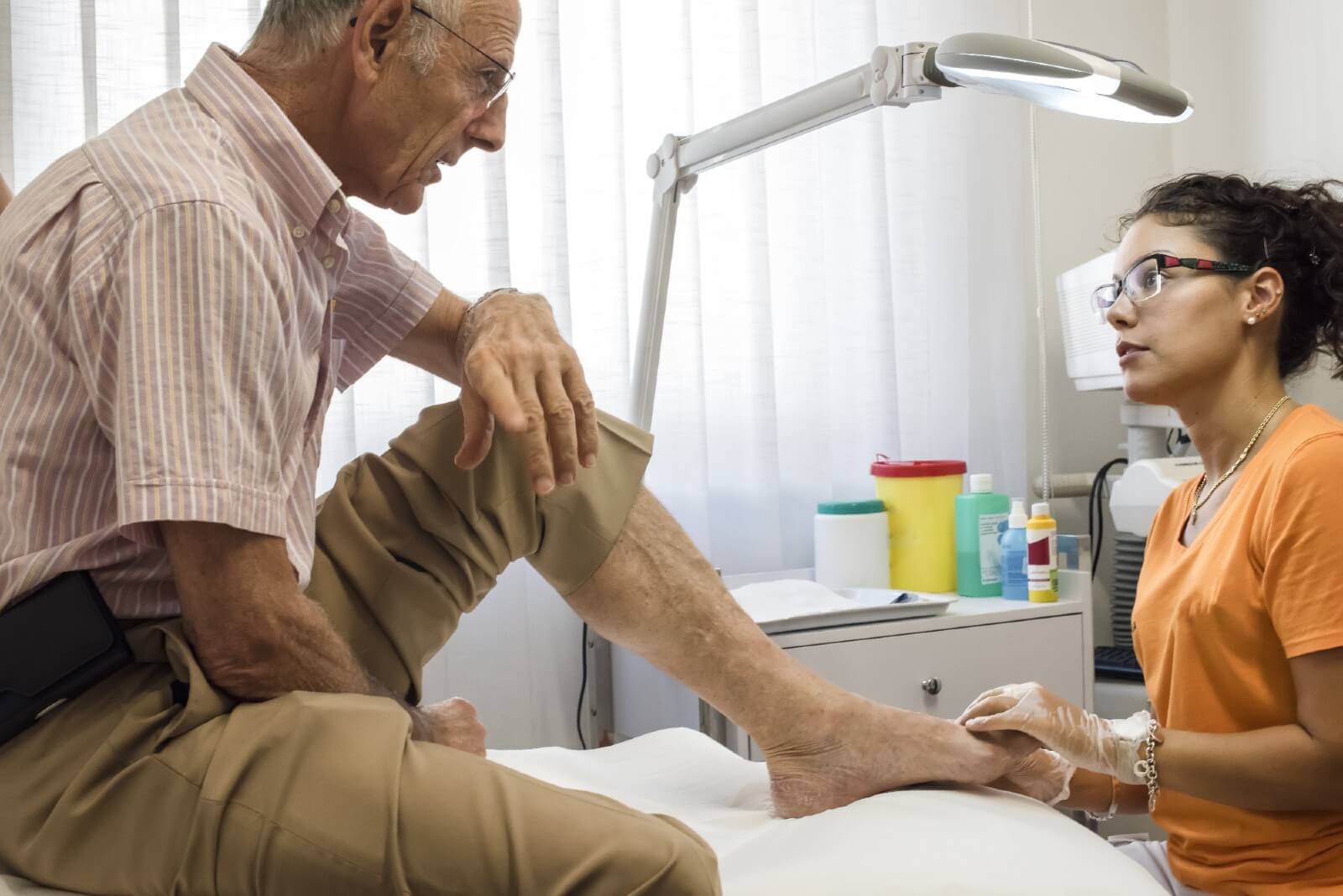If you want to sell neuropathy treatment services, you need to have neuropathy patients. Patients don’t just magically show up to your clinic for treatment services; you have to find them first.
Digital marketing is a cost-effective option that typically has a high return when it comes to finding patients who are in need of your neuropathy treatment services.
Create an Audience
Before you can truly start marketing your neuropathy treatment services, you need to know who your prospective patients are. Consider who is most likely to have neuropathy: people who have certain diseases (diabetes, arthritis, Lyme disease, lupus, HIV — just to name a few autoimmune disorders and bacterial and/or viral infections).
Then look deeper into the populations who tend to be affected by these illnesses. What age range do some of these people fall under for each disease? Are any of these more common in men or women?
Asking these questions and finding the answers is a good place to start for creating your audience of prospective patients.
Have a Digital Presence
Before prospects can start seeking you out, you need to have a digital presence — namely, a website. If your clinic doesn’t have a website, then you’re already falling behind your competitors and are not being found by as many patients as you should be.
And even if you do have a website, that does not guarantee an influx of new neuropathy patients, let alone an increase in leads.
Your website needs to be optimized for mobile devices, speed, and high lead conversion rates. It also needs to look professional, especially since your clinic provides medical treatments and services. It should use a color scheme and fonts that support your brand and are easy on the eyes. A website doesn’t need to have all of the latest features. In fact, it’s often best to keep it sleek and simple, with only a handful of pages on the navigation bar, which should at least have the following pages listed:
- Home page
- Treatment/service pages
- Blog
- About page
- Contact page
These pages can help declutter websites and make website navigation more accessible to prospects. You can always add more pages, but keep in mind it’s a good idea to have consolidated pages with lots of in-depth information. This can help your website be easier to find on search engines.
Help Neuropathy Patients Find You Online
Now that you have a website set up, you’re more likely to be found online. But that doesn’t stop at the website. It’s time to take search engines into account, as they are going to be one of the most useful ways for neuropathy patients to find your clinic. According to Pew Research, almost 60% of Americans look online for health information. Of those people, 77% say they start their research on search engines like Google, Bing, and Yahoo. This means you should be marketing your clinic via search engines.
There are two main search engine marketing channels, both of which are incredibly effective, especially when combined.
Contact OppGen to set up a digital marketing strategy that can reach neuropathy patients online.
PPC Ads: Search and Display Ads

Search advertisements are a kind of digital ad that is “placed” by search engines, like Google or Bing. There are a few different kinds of PPC ads, but the main two are search ads and display ads.
PPC stands for “pay per click,” which explains how these advertisements incur charges: Whenever a prospect clicks on a PPC ad, your advertising account is charged a certain amount. You determine that amount via keyword bidding. Essentially, you decide how much you are willing to pay per click for certain keywords and search phrases your prospects may use when trying to find neuropathy treatments.
How much you decide to pay per click also determines where your PPC ad will be placed. PPC ads are displayed on search engine ranking pages (SERPs), which are the pages that list search results. PPC ads look similar to organic (that is, unpaid) search results. They’re usually placed at the top or bottom of SERPs. Ideally, you want your PPC ad to be placed at the top of the first page of search results for the keywords you’ve bid on.
Some keywords are more competitive, which may make them more expensive and more difficult to get on the ideal spot. But PPC is worth the investment and learning curve in the long run. It helps people who are already seeking neuropathy treatment options find what they’re looking for. More often than not, these are prospects who know they want to undergo treatment for their neuropathy; it’s just a matter of deciding where to go. Since you can choose to display these advertisements to people in a specific radius (in most cases, it’s based on zip code), you’re narrowing your audience down to people in the area. This means it’s highly unlikely you’ll have someone living out of state click on your PPC ad for your neuropathy treatment services.
Display ads are not displayed on SERPs; instead, they can be found just about anywhere on the internet. They’re visual ads (hence the name display ads) that come in a wide variety of sizes. Their placement is based on search history or relevant keywords. For example, a display ad for diabetic neuropathy treatments might be found on a blog post about how to better manage diabetes. That same ad may also appear on an article that isn’t relevant to diabetic neuropathy because the prospect had searched the subject before a few times.
Even if prospects don’t click on display ads, they are still very effective, especially for remarketing (aka retargeting). This involves pushing a display ad to a prospect who visited a website but didn’t take action, such as filling out and submitting a consultation or appointment scheduling form. When a prospect sees a display ad for that website elsewhere, they are more likely to go back to the site they “bounced” from and complete that action.
SEO: Search Engine Optimization
 Search engine optimization is a digital marketing strategy that does not require any financial investment into advertising. It’s an organic strategy with the end goal of getting your website to rank high on the SERPs for certain keywords so more prospective patients will go to your website for information, and eventually, convert from lead to neuropathy patient.
Search engine optimization is a digital marketing strategy that does not require any financial investment into advertising. It’s an organic strategy with the end goal of getting your website to rank high on the SERPs for certain keywords so more prospective patients will go to your website for information, and eventually, convert from lead to neuropathy patient.
Though SEO does not require financial investment, it does require you to invest in time and research. SEO does not result in immediate growth or an explosion in traffic overnight. It often takes months to start seeing an increase in traffic, but it’s well worth it.
SEO is particularly important for local clinics. Whenever someone searches for a business or service, search engines use that person’s location to pull up the nearest options near their current physical location. So if your business doesn’t show up on a relevant local search, it’s time to put in some serious effort into SEO.
In order to jump up in the SERPs rankings, you will need a website that is fast and easy to navigate on mobile devices. You’ll also need to create a Google My Business account with accurate, up-to-date information: your clinic’s name, address, and phone number (and other contact information like an email address), and also have that information published on other relevant listings. This can include Yelp, HealthGrades, YellowPages, and professional medical organizations. Having this information makes it much easier for search engines to find you, which in turn, makes your clinic easier for prospects to find.
The next element that’s required for a better SERP ranking is content. Content can include many different things nowadays: blogs, videos, and podcasts — or even a blend of all three. It should be posted on a regular basis, and it may be a good idea to create a content calendar.
When it comes to blogging, keyword stuffing doesn’t make the cut anymore and can actually hurt your ranking. Search engine bots are now able to “read” more like humans do, so when writing content, make sure it’s simple to read and easy to understand. Not only does that help the bots read, but it also helps prospective neuropathy understand better. Overall, it’s always good when you keep it simple by cutting out jargon and awkward keyword-laden phrases.
Regardless of the medium you choose, your content should be original, in-depth, and well-researched. The more informative it is, the better, because it tells prospects that you really know what you’re doing and are clearly an expert in your field. This also makes it more likely for people to share or link back to your content. When search engines notice other websites linking back to your website, that signals to them that you’re an expert with content worth sharing and will likely bump you up a few spots.
Reach More Neuropathy Patients on Social Media
Don’t underestimate the power and influence of social media, particularly Facebook. Having a Facebook business page for your clinic is a great thing for many reasons. For one, it allows you a way to interact with prospective patients and share updates with current patients about your practice and/or employees. It helps prospects learn about your clinic and who works there, and that can help them decide whether or not they believe you have the right people who can offer them neuropathy treatment services. You can even share the content you’ve created, whether it’s a blog post or a video.
Another reason is that you can use Facebook’s advertising program with a business page. Facebook ads are truly some of the most versatile and effective digital marketing options available. Unlike search engines, Facebook users are required to submit information upon registration. Some of this information is basic demographic information: sex, age, and location. But as people use Facebook, you’ll also find that they have psychographic information available, like their interests (typically found from their Liked pages and posts) and behavior. Facebook then allows business pages to target audiences based on this information, which can be very specific to your audience. They even have a lookalike audience targeting tool that targets users who are similar to your audience.
The third reason why Facebook is a great choice for marketing is due to the wide variety of ad formats, placement locations, and sizes, making it easy to find an advertising option that can fit your clinic’s budget.
Contact OppGen today to begin your Facebook ad campaign.
Contact Us for More Information
OppGen is a highly specialized digital marketing agency that has worked with hundreds of clinics, from chiropractors to podiatrists and many, many more. We build websites and landing pages optimized for lead conversion and SEO, run and manage digital advertising campaigns, research keywords for PPC bidding and SEO, and create content for your website.
For more information about what we can do to help you sell more neuropathy treatment services, contact us or fill out our free digital audit.

